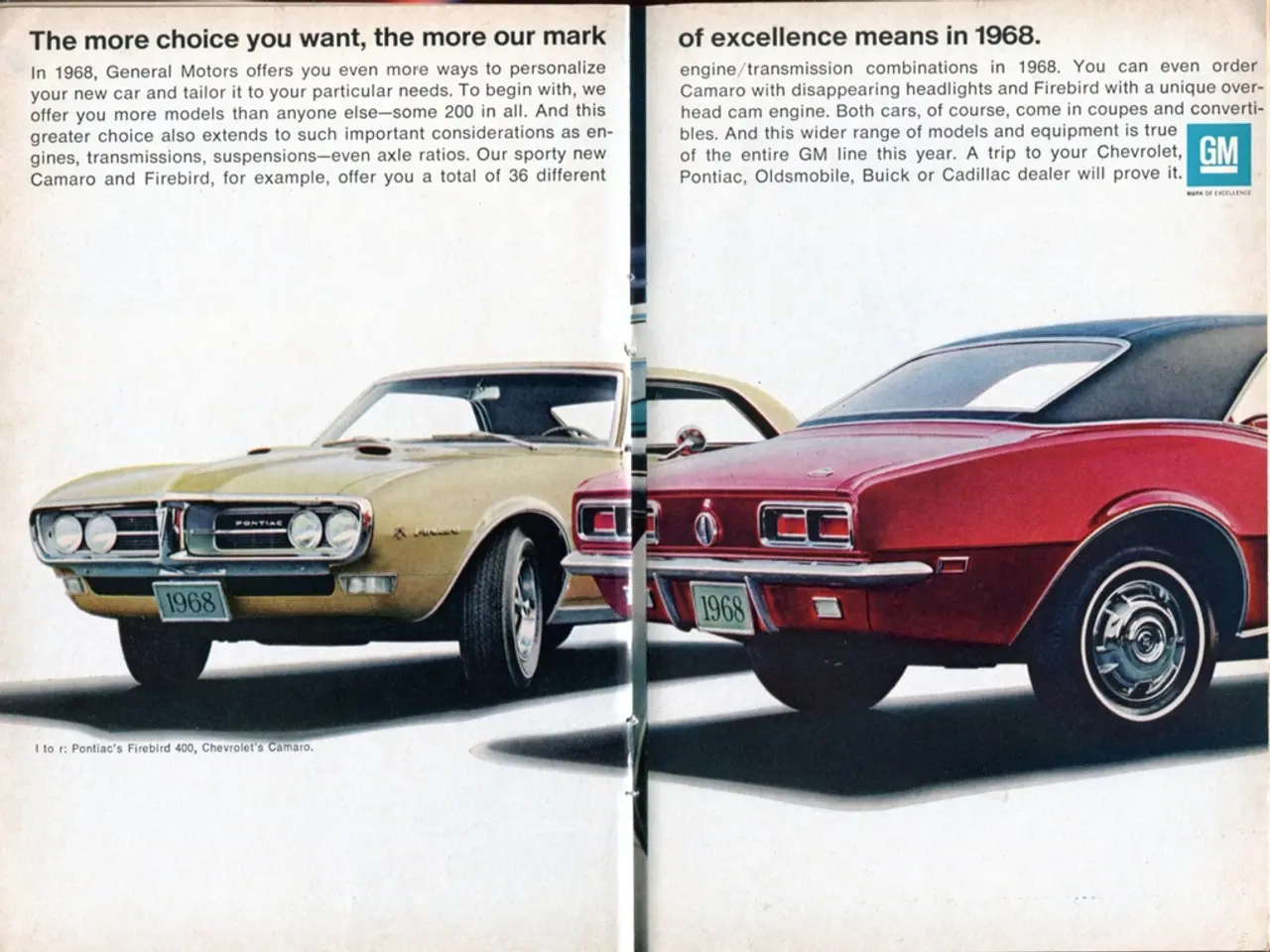Predicted 12-month stock price projections for Rivian by Wall Street analysts
In the rapidly evolving world of electric vehicles (EV), Rivian, the American automotive startup, is gearing up for the launch of its 2026 model, scheduled for late July. However, this impending release has led to a slowdown in production and deliveries, as the company prepares for the next big step.
Over the past six months, Rivian's stock (RIVN) has experienced a 16% decrease, closing at $13.07 on the last trading session, a 1.5% increase. Despite this downturn, Wall Street analysts predict a mixed but cautiously optimistic outlook for Rivian's stock over the next 12 months.
The consensus among analysts for Rivian’s stock price 12-month target is in the range of approximately $14 to $15, reflecting a modest upside from current levels. The highest price targets from analysts go up to $23, indicating some bullish views based on strategic partnerships and growth prospects. On the other hand, the lowest targets are as low as $7.05, reflecting downside risks in the EV market and execution challenges.
The joint venture with Volkswagen Group, worth $1 billion, is seen as a strategic boost that alleviates capital concerns and provides financial flexibility to scale production, supporting more optimistic price targets near $23. This partnership, part of a $5.8 billion collaboration, will co-develop EV platforms and software, starting with the upcoming R2 model.
Canaccord Genuity, a leading financial services firm, views this partnership as a strategic advantage for Rivian, as other automakers slow their EV plans. George Gianarikas, an analyst at Canaccord Genuity, believes the joint venture alleviates "a significant chunk of the capital concern," providing Rivian with financial flexibility to scale production.
Rivian's revenue growth is forecasted to increase significantly through 2030, from about $5.4 billion in 2025 to over $36 billion by 2030. However, this growth is tempered by current market softness and tariff uncertainties. Some caution remains due to recent delivery softness, the upcoming launch of the R2 model, and competition in the EV space.
In Q2 2025, Rivian produced 5,979 vehicles and delivered 10,661, marking a 22% year-over-year drop in deliveries and a 37% decline in production. Despite this, Rivian reaffirmed its full-year delivery target of 40,000 to 46,000 vehicles.
Rivian competes in the EV market with giants like Tesla (NASDAQ: TSLA) and lower-cost Chinese manufacturers. The company's stock is currently rated by eight analysts as a Buy, 13 recommend Hold, and three suggest Sell, resulting in a consensus rating of "Hold."
In conclusion, while Rivian faces challenges in the near term, the strategic partnership with Volkswagen and promising growth prospects offer a glimmer of hope for investors. The consensus among Wall Street analysts is a mixed but cautiously optimistic outlook for Rivian’s stock, with a general consensus price target around $14 to $15, upside potential near $23 from bullish views, but also significant downside risk below $7 from bearish perspectives. The consensus rating is largely “Hold,” reflecting uncertainty and the need for execution on growth plans.
[1] Source: FactSet [2] Source: Bloomberg Intelligence [3] Source: Yahoo Finance [5] Source: CFRA Research
Investors seeking to capitalize on the technology sector might find potential in Rivian, an automotive startup specializing in electric vehicles, as its strategic partnership with Volkswagen Group could lead to significant advancements in EV platforms and software. This collaboration, with a $1 billion worth, might attract investors who are keen on financing the scaling of Rivian's production, due to its bullish impacts on the company's financial flexibility. In the realm of investing, such partnerships could play a pivotal role in addressing capital concerns and boosting optimistic price targets, as demonstrated by some analysts' projections of up to $23 for Rivian's stock.




